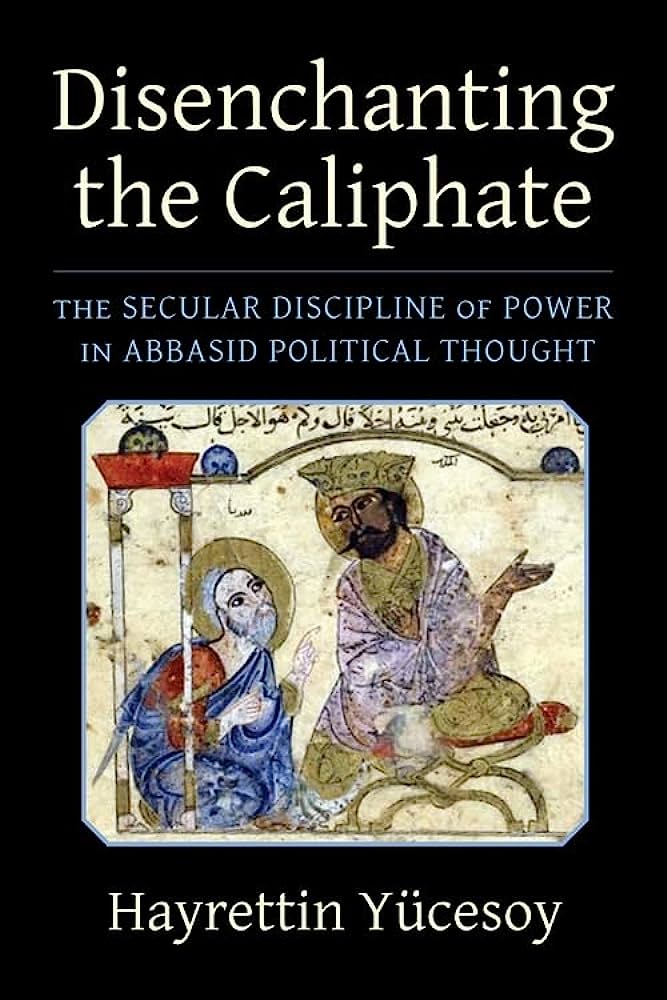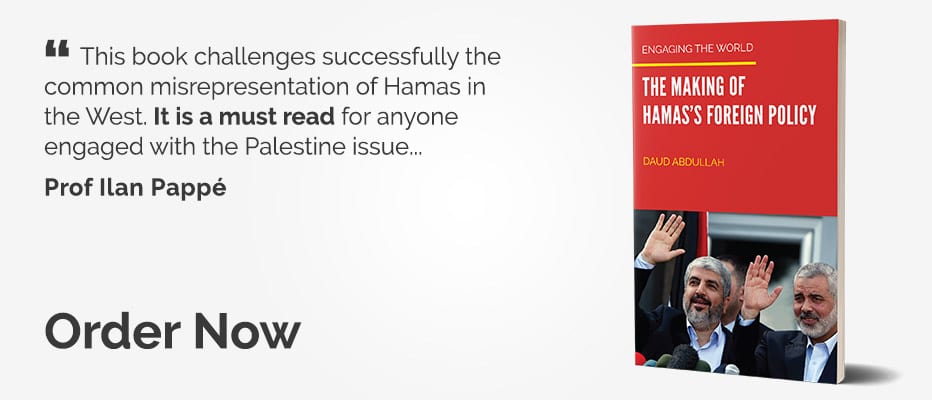Did secularism in the Arab world only really begin in the 20th century after European colonisation? Historians in both the Arab World and the West have long argued that secularism is a uniquely European phenomenon that was exported to the rest of the world through empires. There is no such thing as a separation between Islam and politics and all political thought in the past is Islamic, they contest. Hayrettin Yucesoy argues this generalisation is wrong and while the current way of thinking and practising secularism might be a European export, pre-modern Muslim politics did have its own form of secularity. Disenchanting the Caliphate: The Secular Discipline of Power in Abbasid Political Thought offers a window into a neglected piece of Muslim political thought from the 8th and 9th centuries.
During these centuries, Yucesoy says, two distinct political traditions emerged. One called the Imamate model for governance, "Imamate may be characterized as the ulema's political theology." This is a class of religious scholars called the ulema who – through texts like aqida (creed), kalam (theology), fiqh (religious jurisprudence) and hadiths (sayings of the Prophet) – constructed an idea of what governance and leadership should look like. The Imamate model calls for the Muslim community to be led by a legitimate ruler, who wields religious and secular authority, and would undertake such duties as upholding Shariah (revealed law) and managing the affairs of the world. The Imamate model represents what a lot of people today think of pre-modern Muslim governance, however, there was a rival tradition which took over the functions of the state called the siyasa model. The siyasa model was based around the practicality of governance, which was temporal and one which did not draw upon religious law, texts nor the ulema. According to Yucesoy the ulema used to think of the word siyasa as a dirty word until the 11th century.
Islam, Science Fiction and Extraterrestrial Life: The Culture of Astrobiology in the Muslim World
Siyasa was born out of the rise of Muslim empires and the large bureaucracy that resulted, while concerns about equality, elections, upholding religious law and how to protect and grow faith were important to early Muslims, by the time of the late Ummayad and Abbasid caliphates these were no longer top priorities. Within the bureaucracies of the Ummayad and Abbasid empires, a new class of political thinkers began to emerge and they advanced the cause of a siyasa model of governance. A key figure the book pays attention to is Ibn Al-Muqaffa – a Persian-speaking bureaucrat who came from a family of administrators under the Sasanids. Ibn Al-Muqaffa served in the Abbasid administration and wrote an influential book outlining his vision for rational governance called Epistle on the Caliph's Privy. The theory proposed by Ibn Al-Muqaffa, "unshackles the caliph from the 'juristic' bonds of the ulema by giving him independence." He also, "opens up an intellectual space to discuss the sovereign as a subject of adab and siyasa rather than of theology of the imamate and religious jurisprudence." Ibn Al-Muqaffa sought to shift Muslim governance away from its earlier republican model towards a monarchal model, with the caliph holding absolute power.
According to Yucesoy, Ibn Al-Muqaffa's model would make the caliph and the governing elite a distinct class from the general population. The caliph would, therefore, be above the community of believers.
"The same principle that God 'relegates other matters of ruling and governance to rational judgement, and God gave the right of rational judgement to holders of authority," Yucesoy quotes Ibn Al-Muqaffa as saying. When it comes to law, Ibn Al-Muqaffa has much to say, "Ibn Al-Muqaffa's discourse on law is directed at creating social order intended to function according to the rules and regulations of a monarchy." His new imperial law was not dependent upon Shariah and Ibn Al-Muqaffa sought to curtail the power of the ulema, who he feared with their insistence on following their guidance on Shariah could open a conflict between loyalty to them and the caliph. As a result, everything should be under the control of the caliph and his prerogative should shape law.
Disenchanting the Caliphate offers a window into the theoretical challenges of power politics in the late Ummayad and Abbasid empires. The book does have a few drawbacks and shortcomings, firstly, it spends most of its time talking about a handful of thinkers and zeroing in on a few texts. The study could have benefitted from considering more intellectuals especially after Ibn Al-Muqaffa. The second drawback for me was not enough attention was paid to the practical impact of these ideas, how did the Abbasids govern armed with this new framework? But those concerns aside, Hayrettin Yucesoy has produced a valuable work which scholars of political thought in the Muslim world and on secularism will benefit greatly from. Disenchanting the Caliphate shatters assumptions about mediaeval politics and revitalises debate about the nature of pre-modern political order. Surely, Ibn Al-Muqaffa can no longer be ignored by scholars after this.



